The recommended daily dose contains:
- Grapes 570,000 mg
- OPCs (oligomers of procyanidins) and PACs (proanthocyanidins) from grape seeds 400,000 mg
- Grape seeds (extract) 20,000 mg
Grapes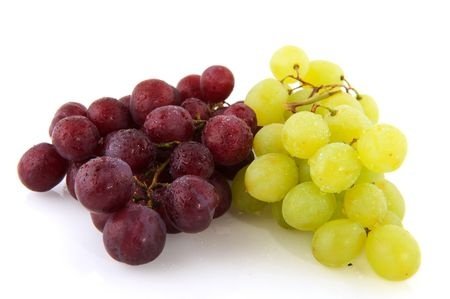
OPC is an abbreviation for a group of substances, oligomers of procyanidins, which are found mainly in grape seeds. These bitter polyphenols are tasted when grape seeds are chewed. OPC is known to protect our cells as a strong and long-term effective antioxidant. OPCs develop the main antioxidant effect by neutralizing the so-called free oxygen radicals. Free oxygen radicals are classified as harmful to our health in the long term because they attack and destroy cells or cell walls, enzymes, our DNA, cell organelles and more. This can lead to serious health problems. Free radicals are constantly in our body, but the body maintains a balance. Radicals appear mostly from toxins in the environment, tobacco smoke, stress and physical exertion, but also with chronic diseases or taking medications, obesity, etc., more radicals can appear, leading to an imbalance, so that the amount of free radicals in the body can increase. Free radicals are neutralized by antioxidants, which, however, are used up in the process, so they must be constantly supplied with food or with appropriate nutritional supplements. Grape seed powder contains OPCs, polyphenols, anthocyanins and catechins, which are also powerful natural antioxidants.
|
OPCs (oligomers of procyanidins) and PACs (proanthocyanidins) from grape seeds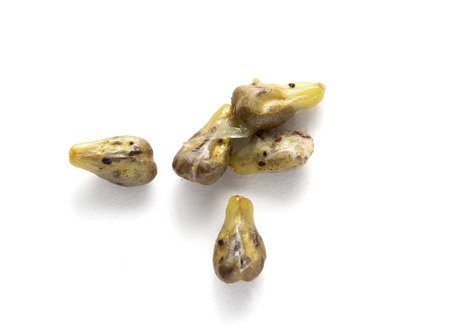
OPC is an abbreviation for a group of substances, oligomers of procyanidins, which are found mainly in grape seeds. These bitter polyphenols are tasted when grape seeds are chewed. OPC is known to protect our cells as a strong and long-term effective antioxidant and to have an extremely positive effect on all symptoms of metabolic syndrome. OPCs develop their main antioxidant effect by neutralizing so-called free oxygen radicals. Free oxygen radicals are classified as harmful to our health in the long term because they attack and destroy cells or cell walls, enzymes, our DNA and more. This can lead to serious health problems. Free radicals are constantly in our body, but the body maintains a balance. Radicals appear mostly from environmental toxins, tobacco smoke, stress and exercise, but with obesity, chronic diseases or medication etc., more radicals can appear, leading to an imbalance, so the amount of free radicals in the body can increase. Free radicals are neutralized by antioxidants, which, however, are used up in the process, so they must be constantly supplied with food or with appropriate nutritional supplements. Grape seeds contain OPCs, PACs (proanthocyanidins), polyphenols, anthocyanins and catechins, which are also powerful natural antioxidants.
The PACs in grape seeds, in addition to being equally powerful antioxidants, improve insulin sensitivity and have a rejuvenating effect on cells. In this way, they protect against cardiovascular diseases, obesity and oncological problems.
|
Grape seeds (extract)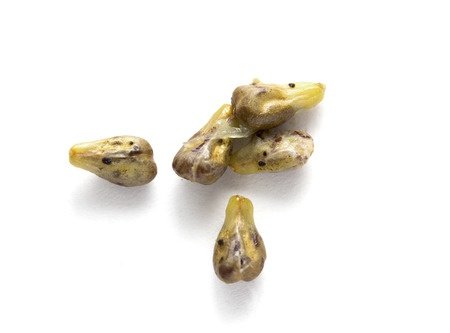
OPC or oligomer procyanidins are very powerful and are sometimes called natural super antioxidants. Their antioxidant action is determined by their extremely condensed aromatic rings, which are perfect stabilizers of free radicals. Polyphenols, anthocyanins and catechins enhance the OPC antioxidant effect and slow down aging processes. Even in the often bitter red grape seeds, high levels of OPCs, polyphenols and anthocyanidins have been found.
|

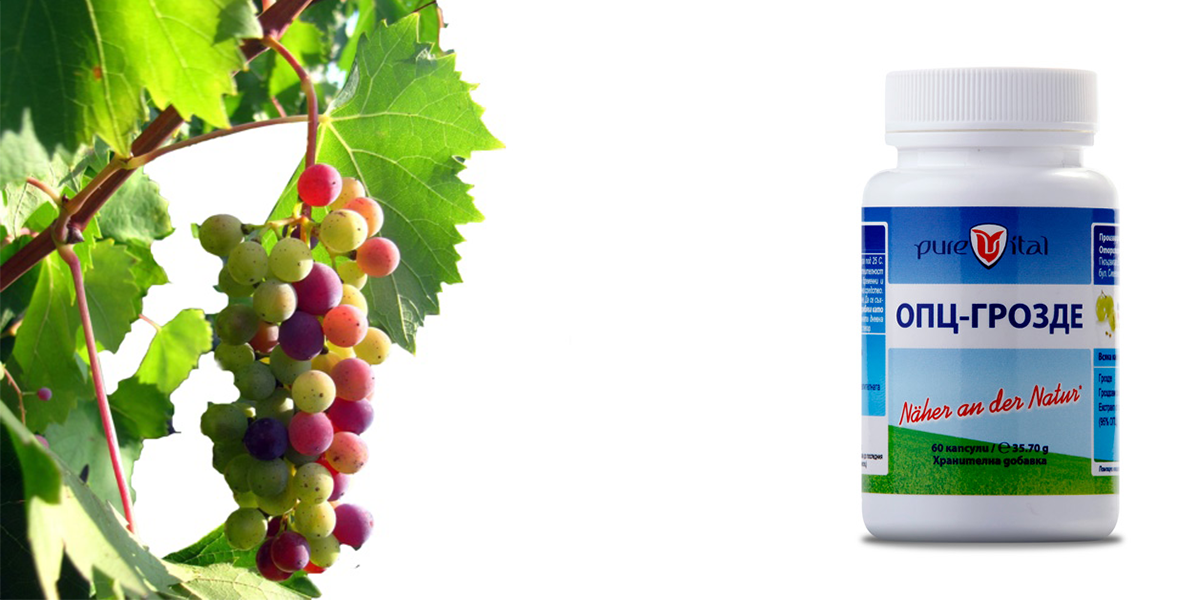
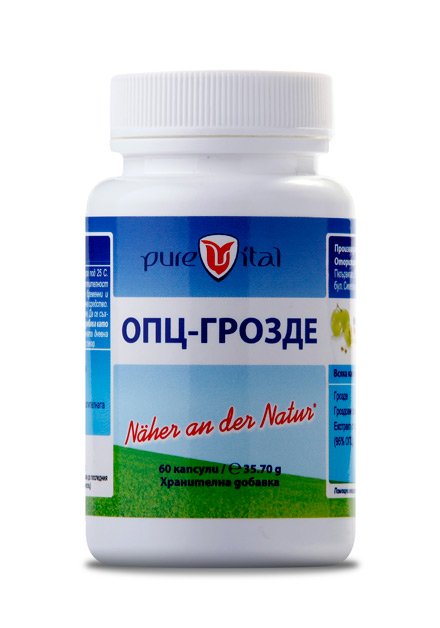

There are no reviews yet.